book, education, workshop, teaching methodologies, research project, public engagement
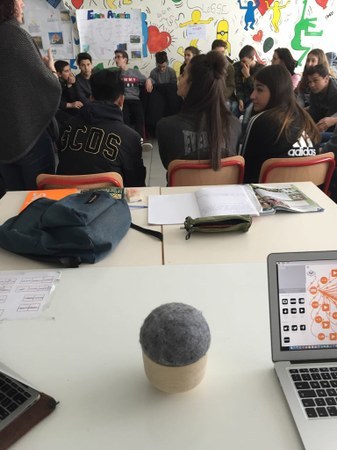
The research-action project Sguardi Oltre. Esperienze ai confini del quotidiano, is one of the actions of the Zonal Educational Plan (PEZ) supported by the Administration of Tuscany within the programming of the Zonal Educational Conference. The work, articulated across a two-year school cycle (2017-19), is based on an anthropological approach of self-knowledge and knowledge of the other and the self and was devised in compliance with a specific request of the commissioner, the Municipality of Scandicci, to the Association Mani Altri Sguardi, whose scientific director is Roberta Bonetti. The goal of the project has been to provide answers and appropriate solutions to phenomena such as bullying and antisocial behaviour.
In its preliminary stage, a co-participated activity of projecting of didactic workshops with managers, teachers and parents took place; it has enhanced the vertical curriculum in continuity from the first to the second cycle of education, and was conceived as a bridge action between heterogeneous groups by age cohorts, belonging to twelve classes of different schools and involving about 350 students. Through listening to the main protagonists, first of all the kids and teens, their families, the whole school system, the research project has been built over time, working - with anthropological methods - on the problems encountered locally.
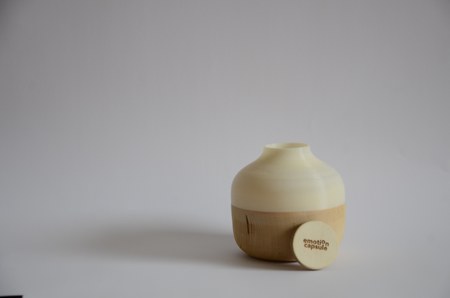
Through an action-research case, Sguardi Oltre deals with school ethnography, interdisciplinary approach, education to complexity, and development of individual skills. It offers theoretical and methodological tools to address the matter of diversity and intercultural processes in today's schools. Through methods and tools such as co-design, by means of an anthropological approach to geography and new technologies, the participants in the project were able to consider in a new and transformative way the pressing and ubiquitous problem of multiple discriminations and bullying behavior at school, and to comprehend the relational, emotional and socio-cultural processes underpinning them.
Although the project was commissioned to address specific issues related to multiple discriminations, that had been singled out by school managers, teachers and parents, it dealt with them obliquely, by making use of lateral tools (from geography to technology), that eventually proved central to solving the problem. The action was effective in that it acted on other levels allowing "children - as one teacher reported - to work in this area without fully realizing it, bypassing resistance". The lateral approach has fostered a new way of considering the pressing challenge of living together, a need emerged and deeply felt by every kid. If the new perspective on geography has facilitated experiences of decentralization and complexity, the concrete and critical knowledge of technologies has enabled students to draw on their personal resources to solve the issues mentioned above.
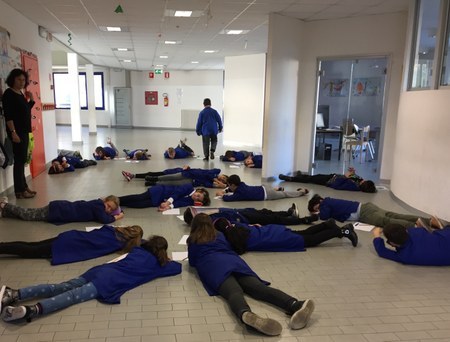
The research revealed cases of self-harm, alcoholism, and violence as well as a general and widespread sense of fear and undefined malaise. In the social media all this finds an outlet for expression, in the absence of concrete spaces for socialization, but certainly not a solution. If technology were eliminated, these problems, without being recognized and resolved, would certainly reappear elsewhere and in other forms. As emerges from the ethnographic survey, it is precisely children and young people who manifest growing forms of saturation and dissatisfaction with internet-based relations, and claim the irreplaceability of face-to-face relationships to express their most important feelings in interpersonal and group settings: emotions and behaviors of which the internet attenuates the expression and downsizes the scope.
From a methodological point of view, the experience makes room for applied anthropology and co-design in educational contexts and, ultimately, also in the so-called new economy. The "collective researcher", citizen and inhabitant of the world, will increasingly have to learn how to be a responsible creator of his own objects, projects, and services. The project's innovative approach consists in the use of anthropological and interdisciplinary tools that are finetuned, from time to time, with the subjects and the environment that become part of the process of social transformation; moreover, it consists in the attention paid to both the individual participation and the contextual variables, as well as in the empowerment of individual actions publicly expressed in group dynamics.
An attempt has been made to overturn an implicit and widespread assumption in schools, through giving emphasis to the active resources of the kids rather than to pathology and discomfort, to actions experienced in first person and in everyday life rather than to the deficit in school performance. This is the most difficult goal to achieve - in terms of time to devote and of sensitive listening, financial resources to allocate and sustainability - but it is the most effective way to activate motivation and involvement if educational policies are actually interested in learning processes from a systemic and relational point of view.
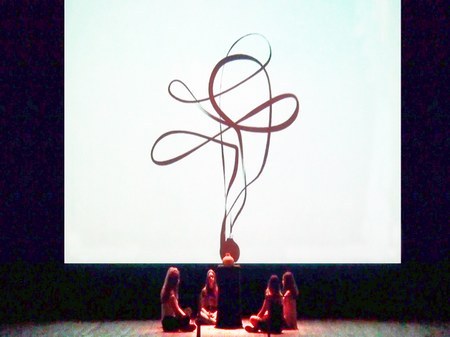
Considering the strong emotional involvement and the high number of participants, we decided to conclude the whole experience with an event that would give back and express thankfulness to the kids for what they had achieved during Sguardi Oltre. At the Theatre 'Aurora' in Scandicci, we staged the event Voci dei ragazzi in bottiglia, a theatrical performance. We involved, as much as possible, the students who had participated in the project and their parents, friends, and relatives, including educators and fellow citizens, also to give everyone the opportunity to meet and experience everyone's contributions. The performance of the bottle was divided into six acts.
On the stage, in a central and elevated position, the digital bottle was reproduced in an enlarged scale and recreated for the audience the experience lived by kids. At each act, a group of five students from different schools and ages entered the stage, sitting on the floor and in a circle, around the capsule of emotions. The bottle, once activated, voiced the thoughts recorded by several speakers. While the sound allowed the thoughts to be heard, the kids sitting on stage passed the original bottle from hand to hand (the one that had been used in class). Every moment was accompanied by dynamic graphics that followed the sound, created for the occasion by Secil Ugur Yavuz. The musical break between one act and the next was a song written and sung expressly for the final event by Sofia, one of the participants.
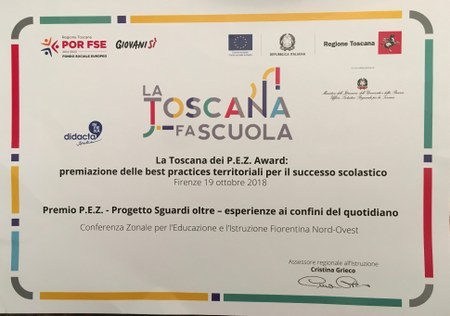
The research-action project "Sguardi Oltre. Esperienze ai confini del quotidiano" is one of the actions of the Zonal Educational Plan (PEZ) supported by the Region of Tuscany within the programming of the Zonal Educational Conference. On October 19, 2018 in Florence (Fortezza da Basso), in the context of the fair Didacta 2018, the project Sguardi Oltre was awarded the P.E.Z. AWARD for the best territorial practices for school success. Among the motivations listed in the protocol of the Tuscany Region of 15/09/2018 are the following:
"The project is rewarded for its originality, for its anthropological approach to self-knowledge and knowledge of the other, for the promotion of active listening skills in relational dynamics aimed at deconstructing stereotypes and preventing behavior at social risk. An approach that has cross-cutting potential on virtually all issues. The element of innovation of the project is to be found in the work of participated co-design by the different subjects involved in the school-family relationship that had the objective of designing educational workshops, in a vertical curriculum perspective".
Sguardi Oltre is continuing its path in several Italian schools, from primary to secondary schools in order to test the "learning by relationships" approach. Joining the initiative means experimenting, through a research-action, one of the participatory approaches that characterize the path, from new geographies to the knowledge of new technologies. We are willing to carry out a training course for educators and parents.
If you are interested in our presentation of the initiative in your institution, please contact Francesco Vettori
Administration of Tuscany Region; Integrated Regional System for the Right to Learning; Municipality of Scandicci; Association Mani Altri Sguardi; Higher Education Institute "Russell-Newton"; Higher Education Institute "Sassetti-Peruzzi"; Istituti Comprensivi Rossella Casini, Altiero Spinelli, Vasco Pratolini.
With the support of:
Alma Mater Studiorum University of Bologna DISCI - Department of History, Culture and Civilisation;
University of Bolzano, Faculty of Design and Arts.
Under the patronage of:
Miur - Ministry of Education, University and Research; Regional School Office for Tuscany; SIAA - Italian Society of Applied Anthropology; IRIS - Tools and Resources for Local Development.